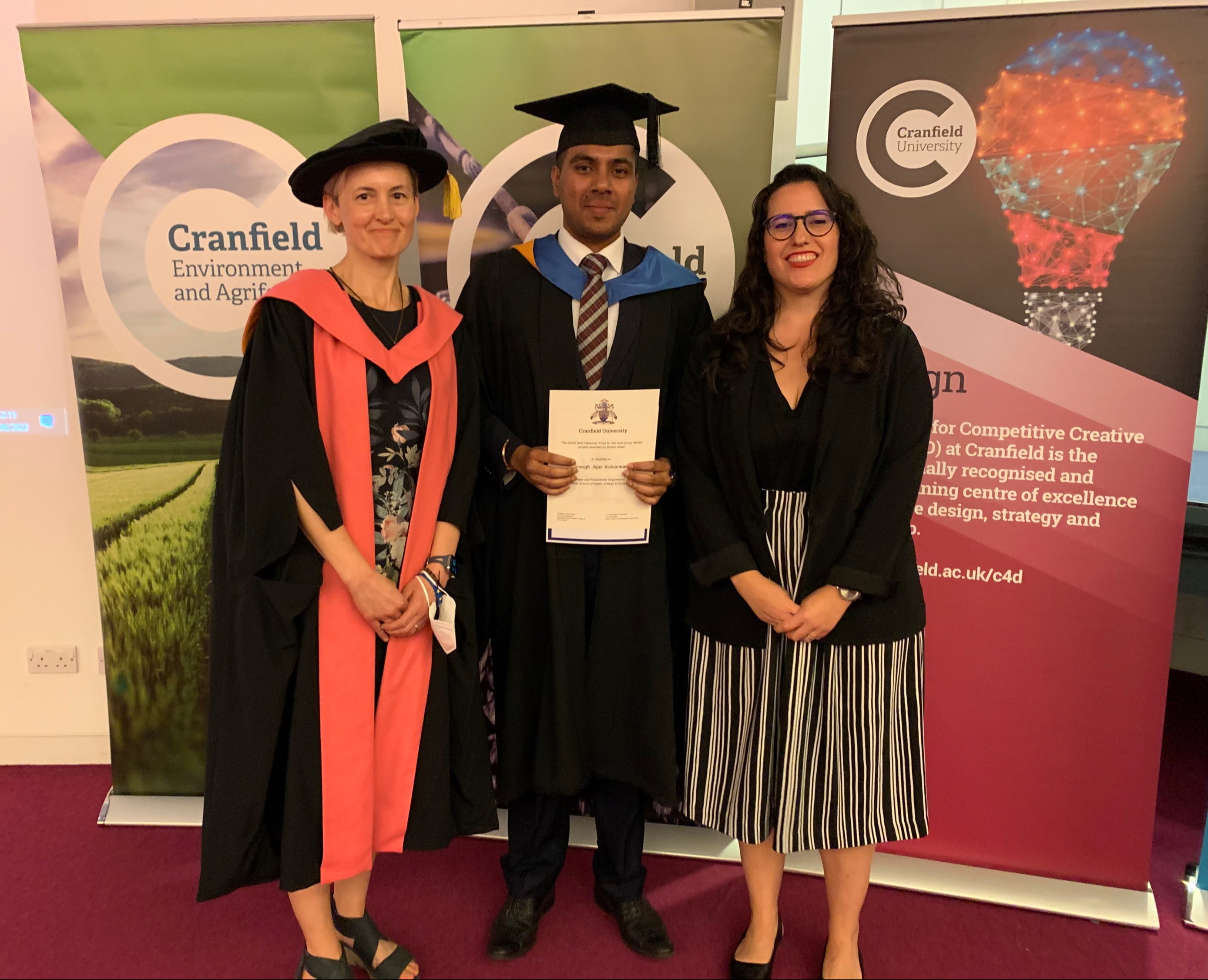The British Water DAVID NEIL-GALLACHER PRIZE - Winners
21 June 2022
(0 Comments)
Posted by: Judith Pons

The British Water DAVID NEIL-GALLACHER PRIZE has been supported by our members and
British Water for over 18 years. We are delighted that our ongoing relationship with
Cranfield University is continuing to foster collaboration between academia and the supply
chain. Each year, students on the Water & Wastewater Engineering MSc take part
in a group design project as part of their course. Entries are rigorously assessed
in order to select the winning team.
Cruise-ship group design project
Places available: 5 WWE students
Students awarded:
Alfredo Leon Bermudez
Elvis Boampong Wireko
Amogh Kolvankar
Sergio Urquiola
Francis Xavier Rwezahura
Supervisors: Irene Carra and Luca Alibardi
Background:
Cruise ships are one of the world’s fastest growing tourism sectors over the past 10 years.
Cruise ship include facilities similar to luxury resort hotels including pools, hot tubs, SPAs,
restaurants, dry cleaners, hair salons and few even have ice skating rinks and surfing
simulators, just to name a few high-end amenities. To cater for the guest needs (up to
8,000 people), cruise ships have extensive hospitality staff in addition to the usual ship's
crew, with some most luxurious ships having more crew and staff than passengers.
To feed and entertain all these guests, cruise ships use a wide range of resources (energy,
water, food, etc.) and as a result, also generate a large number of waste streams including
sewage, greywater, hazardous wastes, oily bilge water, ballast water and solid waste.
These waste streams contain significant amounts of organic material, pathogens,
nutrients, chemicals, toxic substances, etc. and henceforth must be treated and suitably
managed to prevent discharges to the marine environment that could cause severe
pollution incidents.
To address pollution from cruise ships, there are a large number of regulations in place
including local regulations (specific coastal areas and affect cruise ships that visit the
same ports repeatedly), as well as international regulations. One of the major international
agreements relevant to cruise ship pollution is the International Convention for the
Prevention of Pollution from Ships, as modified by the Protocol of 1978, also known as
MARPOL 73/78, or simply MARPOL. Nevertheless this agreement is only in force when
ratified and implemented by the flag state. Hence the International Maritime Organization
resolution MEPC.227(64) sets to meet the operational requirements referred in MARPOL
and expanded to international areas.
Project scope
All Water Ltd are looking for a technical solution for the water supply and wastewater
treatment plant for a cruise ship that will have capacity for 4,400 guests onboard in 2,200
staterooms with a crew contingent of 1,700 members.
The water supply needs to be safe and prevent 100% of disease outbursts. All wastewater,
including black, accommodation grey and laundry grey water generated on-board needs
be treated to meet the modified resolution MEPC.227(64) quality standards. Water re-use
and energy and resource recovery should be taken into consideration.
Championing collaboration and making space for the next generation of water
industry professionals is something British Water is committed to. We look forward
to many more years of partnering with Cranfield and supporting rising talent from
across the industry as we step into the future.
|